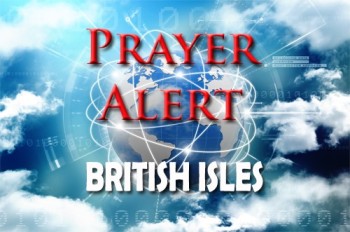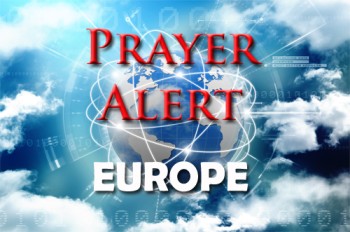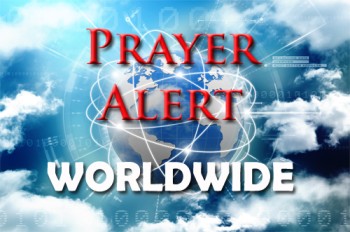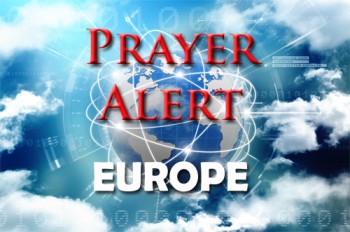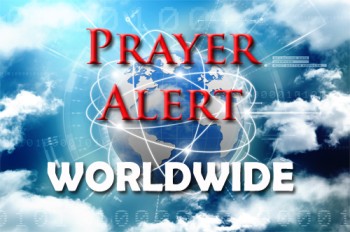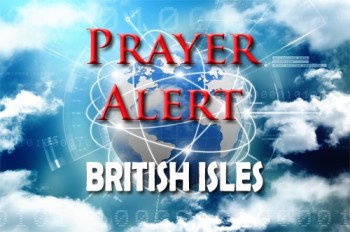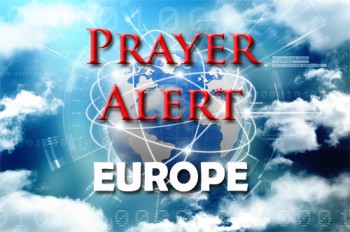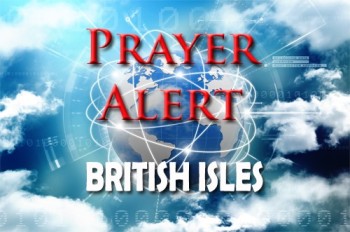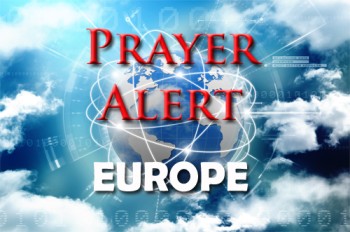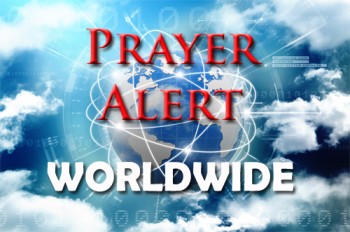Displaying items by tag: Donald Trump
Starmer hints he will hit back at Trump as tariff war intensifies
Keir Starmer has declared that 'all options are on the table' as Britain weighs its response to Donald Trump’s global tariffs on steel and aluminium. The EU has already imposed countermeasures, but the UK has taken a cautious approach, seeking an economic agreement rather than immediate retaliation. Trump administration insiders warn that a quick trade deal with the UK may hinge on abandoning online safety legislation - a demand Starmer is unlikely to meet. Additionally, US vice president JD Vance has prioritised free speech concerns in trade talks, challenging the UK’s regulations on tech companies. With the UK now outside both the EU and US trading blocs, businesses fear further economic strain. Steel industry leaders have urged the Government to take strong action, while some politicians argue that failing to respond will weaken the UK’s position. As tensions mount, prayers are needed for wisdom in leadership, economic stability, and fair trade agreements.
Ukraine: Russia considers US ceasefire proposal, claims it is regaining Kursk region
US officials have arrived in Moscow to discuss a proposed thirty-day ceasefire between Russia and Ukraine. Special envoy Steve Witkoff hopes to persuade Russia to agree to the deal, which Ukraine accepted earlier this week after talks in Jeddah. The Kremlin confirmed discussions were planned but gave no details. US secretary of state Marco Rubio said that the ceasefire decision now rests with Russia, while Donald Trump warned of financial consequences if Russia rejects peace. Meanwhile, Russia claims to have recaptured 86% of the Kursk region, which Ukraine invaded last year. Vladimir Putin, visiting the area, has reportedly ordered a full military push to reclaim all lost territory. Events this week show a remarkably swift turnaround from a week ago: see
Canada: new PM willing to negotiate with Trump if sovereignty respected
Mark Carney, prime minister-designate, has expressed willingness to renegotiate a trade deal with Donald Trump, provided Canadian sovereignty is respected. His remarks came as Canada imposed C$29.8 billion (£16 billion) in retaliatory tariffs on US imports after Trump enacted 25% tariffs on steel and aluminium. Trump has justified the move as a national security measure, aiming to bolster domestic industries. However, Carney condemned the tariffs as ‘unjustified’, warning of economic instability. Canada, the largest foreign supplier of these metals to the USA, is heavily impacted. Ottawa’s retaliatory tariffs include steel, aluminium, and other goods, with more measures set to take effect. The Bank of Canada has cut interest rates to 2.75% to cushion the economic fallout. Meanwhile, the EU has taken strong retaliatory measures against Trump’s tariffs coming into effect: see
Ukraine / USA: first all military aid, now intelligence sharing is paused
Donald Trump’s administration has reportedly halted, at least partially, intelligence sharing with Ukraine, a move that could severely impact Kyiv’s defence against Russia. National security adviser Mike Waltz and CIA Director John Ratcliffe confirmed a pause is in place, suggesting it might be lifted if Ukraine takes steps toward negotiations. The intelligence freeze follows a suspension of US weapons deliveries, aimed at pressuring Ukraine into a peace deal. Volodymyr Zelensky has signaled a willingness to negotiate, and renewed talks between US and Ukrainian officials are expected soon. However, critics warn that cutting intelligence and military aid ‘pretty much guarantees a Russian victory without there needing to be a peace deal’. Meanwhile, concerns remain over whether the administration or Elon Musk will continue allowing Starlink, a vital communication tool for Ukraine. Some US military and intelligence officers feel that ‘we are abandoning our allies on the battlefield’.
Tariffs: Trump targets Canada, Mexico, China
Donald Trump has imposed a 25% duty on imports from Canada and Mexico and doubled tariffs on Chinese goods to 20%. He says that all three countries have failed to do enough to stem the flow of the deadly opioid fentanyl. These measures could disrupt over $2.2 trillion in trade. China immediately retaliated, announcing new tariffs on US agricultural products and export restrictions on 25 American firms, including those linked to arms sales to Taiwan. Canada and Mexico also pledged countermeasures, with Canada targeting US goods such as beer, wine, and home appliances. Ontario premier Doug Ford even suggested halting nickel shipments and electricity exports to the USA. China, already facing heightened tariffs on semiconductors and electric vehicles, expressed frustration, accusing the US of violating trade agreements. With trade tensions escalating, global markets remain uncertain as major economies brace for economic fallout.
Starmer in Washington for talks with Trump, focus on Ukraine
Keir Starmer has held his first meeting with Donald Trump. Despite tensions between the White House and Europe, Starmer affirmed his trust in Trump and emphasised the 'special relationship' between the UK and the USA. However, Trump appeared reluctant to commit to a US military backstop for Ukraine, stating that Europe should take the lead. Starmer underscored the importance of a lasting peace with a security guarantee to deter further Russian aggression. While the UK and France are prepared to deploy peacekeeping troops, securing US support remains crucial. In preparation for the talks, the UK pledged to increase defence spending, a key NATO requirement, while maintaining strong ties with both the US and European allies. Starmer reassured the British public that national security remains a top priority, while also highlighting opportunities for job creation in the defence sector. For an assessment of Starmer’s visit, which included an invitation from King Charles for an unprecedented second state visit, see
Ukraine / USA: Trump says Zelensky will sign mineral resources agreement
Donald Trump is to meet Volodymyr Zelensky in Washington on 28 February to sign a preliminary agreement on sharing Ukraine’s mineral resources. While Trump touts the deal as a way for the USA to recoup aid given to Ukraine, Zelensky is seeking broader agreements, including security guarantees. However, Trump has ruled out significant US commitments and dismissed Ukraine’s NATO ambitions, saying European nations should bear more responsibility for Ukraine’s security. He also suggested a ceasefire deal was near, with European peacekeepers stationed in Ukraine - an idea Russia opposes. The mineral deal remains vague, but Ukraine hopes it will bring investment for reconstruction. There are warnings that Ukraine first needs to address its problem of unexploded landmines before striking a deal: a quarter of the country is estimated to be contaminated with them. Meanwhile, Vladimir Putin has reportedly offered the USA access to minerals from Russian-occupied Ukrainian territory. In an earlier development, the USA voted against a UN vote condemning Russia’s invasion of Ukraine: see
Starmer backs Zelensky after Trump calls him 'dictator'
Sir Keir Starmer has backed Volodymyr Zelensky, calling him a 'democratically elected leader', after Donald Trump described him as a dictator. Starmer reassured Zelensky that suspending elections during wartime, as the UK did in World War Two, was 'perfectly reasonable’. He is set to meet Trump in Washington next week, aiming to secure a US backstop to deter further Russian aggression. He has said he is prepared to deploy British troops to Ukraine as part of a peace agreement, with Western officials suggesting under 30,000 troops could be sent to provide reassurance. Meanwhile, Trump's comments have sparked criticism from Sweden’s prime minister, German chancellor Olaf Scholz, and former US vice president Mike Pence, among others. Some Western officials are discussing using drones and intelligence aircraft to monitor Ukraine rather than deploying large numbers of troops.
Ukraine: Hegseth defends Trump’s phone call to Putin
US secretary of state Pete Hegseth has defended Donald Trump’s push for peace talks on Russia’s war in Ukraine, insisting it was not a betrayal of Kyiv. Speaking before a NATO meeting in Brussels, Hegseth emphasised the need for a negotiated peace but called Ukraine’s demands - restoring pre-2014 borders and NATO membership - ‘unrealistic’. Trump later confirmed he had spoken with Vladimir Putin, agreeing to initiate negotiations without prioritising territorial concerns or Ukraine’s NATO bid. European leaders voiced concern, fearing premature concessions could embolden Russia. Hegseth asked NATO allies to ramp up defence spending to 5%, a target the US itself does not reach. Volodymyr Zelensky, after speaking with Trump, reiterated his commitment to securing peace while ensuring Ukraine’s security. Questions remain over whether Moscow will accept a deal that meets Kyiv’s conditions. Trump’s advisers are set to meet Zelensky at the Munich security conference to discuss next steps.
Gaza: future of ceasefire in the balance
The Gaza ceasefire agreement between Israel and Hamas, in effect since 19 January, is at risk of collapsing. Efforts by Egypt and Qatar to mediate continue, as a senior Hamas delegation arrived in Cairo to salvage the truce. Benjamin Netanyahu has warned that if hostages are not released by Saturday, intense military operations will resume. The situation has been further complicated by Donald Trump's recent proposal to remove Gaza’s Palestinian residents, which has emboldened Israel’s far-right leaders. Some Israeli ministers are now demanding a total military takeover of Gaza. Meanwhile, Israeli security officials argue that breaking the ceasefire would endanger hostages still held in Gaza. Families of captives and displaced Gazans fear renewed conflict. Breaking news: Hamas has said it will release three hostages on 15 February as agreed, although earlier it had threatened to cancel the ceasefire, claiming that Israel had failed to fulfil key commitments.
